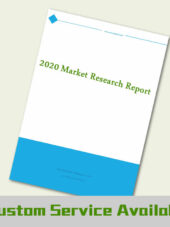Description
Market Report Coverage – Commercial Space Payload Market
Market Segmentation
• Application: Communication, Earth Observation and Remote Sensing, Space Exploration, Surveillance and Reconnaissance
• Payload: Nano and Micro Satellite (0-200 kg), Small Satellite (201-1,200 kg), Medium Satellite (1,201-2,200 kg), Large Satellite (Above 2,201 kg)
• Orbit: Geosynchronous Earth Orbit (GEO), Medium Earth Orbit (MEO), Low Earth Orbit (LEO)
Regional Segmentation
• North America: U.S., Canada
• Europe: Germany, U.K., France, Russia, Rest of Europe
• Asia-Pacific: Japan, China, India, Australia, Rest-of-Asia-Pacific
• Rest-of-the-World: Middle East and Africa, Latin America
Market Growth Drivers
• Increasing Number Of Commercial Satellite Launches
• Rising Deep Space Exploration Missions
Market Challenges
• Potential In-Space Collisions Due To Space Debris
• Technical Issues Related To Low-Cost Space Technologies
Market Opportunities
• Emergence of Private Players And Start-ups In The Space Industry
• Growing Demand For Internet Connectivity
Key Companies Profiled
Airbus S.A.S, Ariane Group, Astrocast, Black sky Global (Blacksky Technology Inc.), Blue Origin, LLC, Capella Space, GomSpace, Lockheed Martin Corporation, Oneweb, Planet IQ, Planet Labs, Spaceflight, SpaceX, Thales Alenia Space, Tyvak, United Launch Alliance, LLC
How This Report Can Add Value
This extensive report can help with:
• A dedicated section focusing on the futuristic trends adopted by the key players operating in the global commercial space payload market
• Extensive competitive benchmarking of top 15 players (including OEMs and component providers) offering a holistic view of the global commercial space payload landscape
• Detailed qualitative and quantitative mapping of satellite launches and manufacturing from 2020-2031
• Qualitative and quantitative analysis of commercial space payload at the region and country-level granularity by application and product segments
Product/Innovation Strategy: The product segment helps the reader in understanding the different types of commercial space payload and their market potentials globally. Moreover, the study provides the reader a detailed understanding of commercial space payload technology with respect to orbit and payload type.
Key Questions Answered in the Report
• What are the futuristic trends in this market, and how is the market expected to change over the forecast years 2021-2031?
• What are the key drivers and challenges faced by the companies that are currently working in the commercial space payload market?
• How is the market expected to grow during the forecast period 2021-2031?
• What are the opportunities for the companies to expand their businesses in the Commercial Space Payload market?
• Which region is expected to be leading the commercial space payload market by 2031?
• What are the key developmental strategies implemented by the key players to sustain in this highly competitive market?
• What is the current and future revenue scenario of this market?
• What is the competitive scenario of the key players in the global commercial space payload market?
• What are the strengths and weaknesses of the companies that are influencing the growth of the market?
• What are the emerging technologies that the key companies are focusing on to increase their market share?
Commercial Space Payload
Satellites are specialized radio-based instrumentation and communication systems that cater to various applications such as Earth observation and remote sensing, communication, and satellite internet. Commercial space payload refers to the revenue-producing satellites or cargo sent to the Earth’s orbit using a space launch vehicle.
The commercial space payload market generates revenue by deploying satellites into the Earth’s orbit, mostly in Low Earth orbit (LEO) and Geosynchronous Earth orbit (GEO).
Between 1957 and 2021, many governments and commercial organizations such as SpaceX, Ariane Space, Europe Space Agency (ESA), National Aeronautics and Space Administration (NASA), and Japan Aerospace Exploration Agency (JAXA), started demonstration for the new propulsion system for different satellites in Low Earth orbit (LEO). Since then, technology has evolved continually and transformed the entire space industry by developing unique products and systems.
Commercial Space Payload Industry Overview
The global commercial space payload market is expected to reach $56.32 billion by 2031, with a CAGR of 5.51% during the forecast period 2021-2031.
The increasing number of satellite constellations for applications such as communication, technology development, Earth observation, and remote sensing is expected to be the major driving factors for the market.
Market Segmentation
Commercial Space Payload Market by Application
Communication application is anticipated to witness huge growth over the forecast period and has a major market share in 2020 due to the increasing demand for remote sensing, Earth observation, and navigation, surveillance, satellite internet. Growing demand for navigation among consumers has also propelled the private players to enter the segment.
Commercial Space Payload Market by Region
North America is expected to account for the highest share of the global communication space payload market, owing to a significant number of companies based in the region, increased spending by government and commercial organizations such as the National Aeronautics and Space Administration (NASA), Aerojet Rocketdyne, Ariane Group, Exotrail, Space X, and Enpulsion for commercial payload launches.
Key Market Players and Competition Synopsis
Airbus S.A.S, Ariane Group, Astrocast, Black sky Global (Blacksky Technology Inc.), Blue Origin, LLC, Capella Space, GomSpace, Lockheed Martin Corporation, Oneweb, Planet IQ, Planet Labs, Spaceflight, SpaceX, Thales Alenia Space, Tyvak, United Launch Alliance, LLC
The companies profiled in the report have been selected post-in-depth interviews with experts and understanding details around companies such as product portfolios, annual revenues, market penetration, research and development initiatives, and domestic and international presence in the commercial space payload market.
Related Report: Aerospace Cold Forgings Market: Global Analysis of Market Size, Share & Trends for 2019- 1020 and Forecasts to 2030
Related Report: Space-qualified Propellant Tank Market: Analysis and Forecast, 2021-2031
Related Report: Advanced Space Composites Market – A Global and Regional Analysis: Focus on Platform, Component, Material, Manufacturing Process, Services, and Country – Analysis and Forecast, 2021-2031





